Summer fruits are replete with a number of invaluable nutrients, dietary fibres and electrolytes, which are needed by the body to replenish itself and flush out toxins. However, some of them have a...
Summers are here in full force and any respite from the incessant heat is welcome. All across the Indian subcontinent, people are adding seasonal vegetables and fruits to their daily diets, either in the solid or juice form. Summer fruits are replete with a number of invaluable nutrients, dietary fibres and electrolytes, which are needed by the body to replenish itself and flush out toxins. Moreover, in-season produce is fresher, sweeter and riper. The nutrients in seasonal fruits progressively decline as these fruits go out of season.
from NDTV Food - Latest
https://ift.tt/2sjPjNJ
(Also Read -Should You Eat Fruits Before Or After A Meal?)
 Healthy Summer Fruits: Eating seasonal has many health benefits
Healthy Summer Fruits: Eating seasonal has many health benefits
Including more fresh fruits in your diet can give you the energy to beat the summer heat. There are a lot of ways you can play around with fruits in summers, in form of desserts, cold beverages or eating them raw, in fruit chaats etc. However, people who are dieting may have reservations about eating certain summer fruits, fearing high sugar content and high calories in them. So if you're one of those who is consciously watching the number of calories in each meal, these nutrition facts about your favourite summer fruits may help you.
Here is how many calories your favorite summer fruits have:
1. Mango
One of the most notorious summer fruits out there is mango, which has got a bad rapport with health freaks and patients with high blood sugar. However, if eaten in control, mangoes aren't just perfectly healthy, but may even help you along in your weight loss diet. According to the US Department of Agriculture, a 100 gm serving of mango contains a mere 60 calories, making it a good low-calorie snacking option.
(Also Read -10 Unknown Benefits of Mango Leaves: Don't Throw Them Away!)
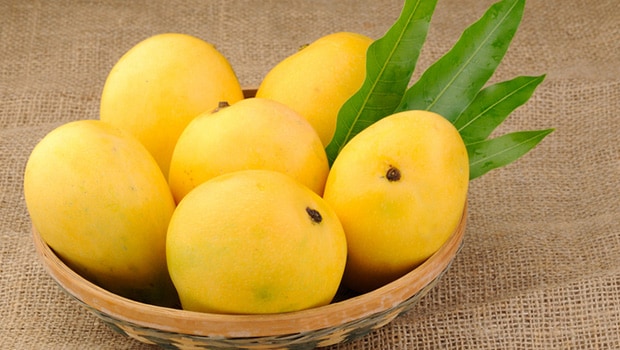 Healthy Summer Fruits: Mangoes have a bad rapport with health freaks
2. Melons
Healthy Summer Fruits: Mangoes have a bad rapport with health freaks
2. Melons
One of the best parts about summer is the numerous types of melons that it brings along with it. Watermelons, muskmelons and sun melons are just some of the most common ones available in India. Watermelons are one of the healthiest summer fruits as they are made up of 90 per cent of water. A 100 gm serving of watermelon contains just 30 calories while the muskmelon serves 34 calories in the same portion size. Sun melons also have almost the same amount of calories as the above two.
(Also Read - Drinking Water After Eating Watermelon: Is it Safe or Not?)
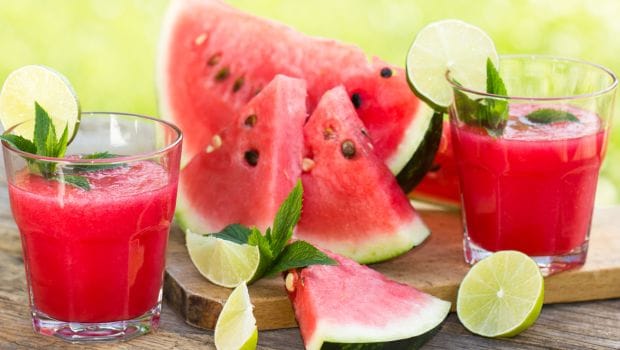 Healthy Summer Fruits: Watermelon is one of the best low-calorie summer fruits out there
Healthy Summer Fruits: Watermelon is one of the best low-calorie summer fruits out there
3. Berries
Mulberries (shahtoot), strawberries and phalsa (Grewia Asiatica) are three of the most commonly available berries in India, during summers. According to USDA, a 100 gm serving of ripe mulberries has just 43 calories, while strawberries pack in a mere 33 calories. Phalsa or Grewica, meanwhile, has more number of calories than both mulberries and strawberries.
(Also Read -7 Indian Wonder Berries and Their Health Benefits You Don't Want to Miss!)
4. Lychee
The juicy, translucent and flavourful litchi pulp is a summer favourite that is grown in many Asian countries. It is extensively used in fruit juices, fruit mocktails, summer cocktails and is enjoyed raw as well. One 100 gm cup of raw litchi pulp contains a mere 66 calories, according to USDA data.
(Also Read -9 Amazing Lychee Benefits: From Better Digestion to Weight Loss)
5. Cherries
One of the most common ornamentation fruits on desserts is the sweet cherry, which is available in India as well. Bright red cherries are delightful to bite into and can be used in a number of sweet dishes as well. Moreover, cherries can also be used in fruit juices. According to USDA, a 100 gm serving of red cherry contains just 50 calories.
(Also Read -6 Benefits of Tart Cherries: Little Berries That Pack a Punch)
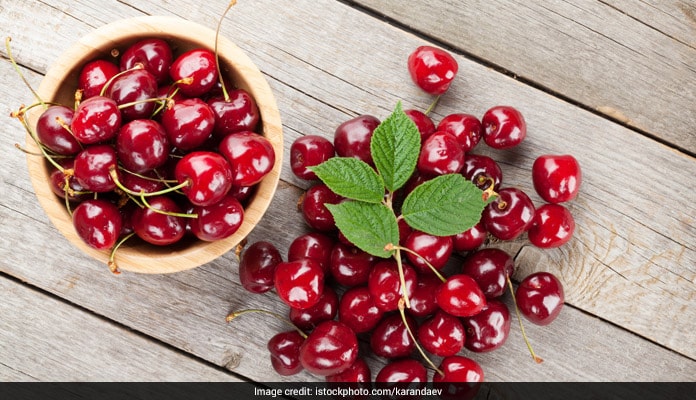 Cherries
Cherries
6. Sweet lime (Mosambi)
Sweet lime or mosambi is a fruit that many Indian households stock up on, during summers. The fruit has many benefits on the skin, hair and overall health. Moreover, it makes for a great low-calorie snack, as according to USDA, a 100 gm serving of mosambi pulp contains just 43 calories.
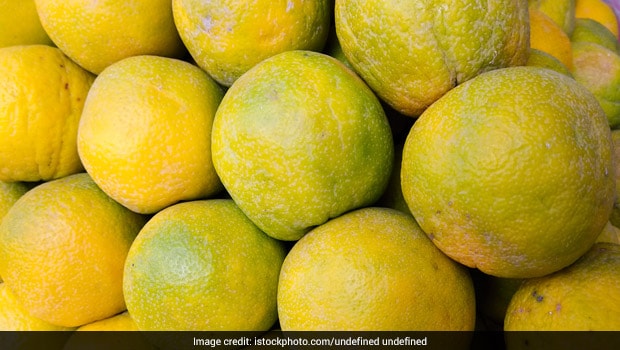
Sweet lime ( Mosambi)
Most of these summer fruits are great as healthy snacks, if eaten in small portions and without any additives or sweeteners. If you do want to add sweeteners to your fruits, make sure they are natural and not processed or artificial. It is recommended for diabetics and obesity patients to consult their nutritionists, about which fruits are healthy for them and which ones are not.
 Healthy Summer Fruits: Eating seasonal has many health benefits
Healthy Summer Fruits: Eating seasonal has many health benefitsIncluding more fresh fruits in your diet can give you the energy to beat the summer heat. There are a lot of ways you can play around with fruits in summers, in form of desserts, cold beverages or eating them raw, in fruit chaats etc. However, people who are dieting may have reservations about eating certain summer fruits, fearing high sugar content and high calories in them. So if you're one of those who is consciously watching the number of calories in each meal, these nutrition facts about your favourite summer fruits may help you.
Here is how many calories your favorite summer fruits have:
1. Mango
One of the most notorious summer fruits out there is mango, which has got a bad rapport with health freaks and patients with high blood sugar. However, if eaten in control, mangoes aren't just perfectly healthy, but may even help you along in your weight loss diet. According to the US Department of Agriculture, a 100 gm serving of mango contains a mere 60 calories, making it a good low-calorie snacking option.
(Also Read -10 Unknown Benefits of Mango Leaves: Don't Throw Them Away!)
 Healthy Summer Fruits: Mangoes have a bad rapport with health freaks
Healthy Summer Fruits: Mangoes have a bad rapport with health freaksOne of the best parts about summer is the numerous types of melons that it brings along with it. Watermelons, muskmelons and sun melons are just some of the most common ones available in India. Watermelons are one of the healthiest summer fruits as they are made up of 90 per cent of water. A 100 gm serving of watermelon contains just 30 calories while the muskmelon serves 34 calories in the same portion size. Sun melons also have almost the same amount of calories as the above two.
(Also Read - Drinking Water After Eating Watermelon: Is it Safe or Not?)
 Healthy Summer Fruits: Watermelon is one of the best low-calorie summer fruits out there
Healthy Summer Fruits: Watermelon is one of the best low-calorie summer fruits out there3. Berries
Mulberries (shahtoot), strawberries and phalsa (Grewia Asiatica) are three of the most commonly available berries in India, during summers. According to USDA, a 100 gm serving of ripe mulberries has just 43 calories, while strawberries pack in a mere 33 calories. Phalsa or Grewica, meanwhile, has more number of calories than both mulberries and strawberries.
(Also Read -7 Indian Wonder Berries and Their Health Benefits You Don't Want to Miss!)
4. Lychee
The juicy, translucent and flavourful litchi pulp is a summer favourite that is grown in many Asian countries. It is extensively used in fruit juices, fruit mocktails, summer cocktails and is enjoyed raw as well. One 100 gm cup of raw litchi pulp contains a mere 66 calories, according to USDA data.
(Also Read -9 Amazing Lychee Benefits: From Better Digestion to Weight Loss)
5. Cherries
One of the most common ornamentation fruits on desserts is the sweet cherry, which is available in India as well. Bright red cherries are delightful to bite into and can be used in a number of sweet dishes as well. Moreover, cherries can also be used in fruit juices. According to USDA, a 100 gm serving of red cherry contains just 50 calories.
(Also Read -6 Benefits of Tart Cherries: Little Berries That Pack a Punch)
 Cherries
Cherries6. Sweet lime (Mosambi)
Sweet lime or mosambi is a fruit that many Indian households stock up on, during summers. The fruit has many benefits on the skin, hair and overall health. Moreover, it makes for a great low-calorie snack, as according to USDA, a 100 gm serving of mosambi pulp contains just 43 calories.

Sweet lime ( Mosambi)
Most of these summer fruits are great as healthy snacks, if eaten in small portions and without any additives or sweeteners. If you do want to add sweeteners to your fruits, make sure they are natural and not processed or artificial. It is recommended for diabetics and obesity patients to consult their nutritionists, about which fruits are healthy for them and which ones are not.
from NDTV Food - Latest
https://ift.tt/2sjPjNJ


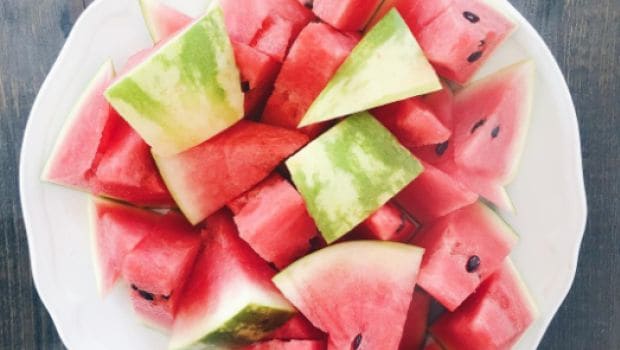
No comments:
Post a Comment